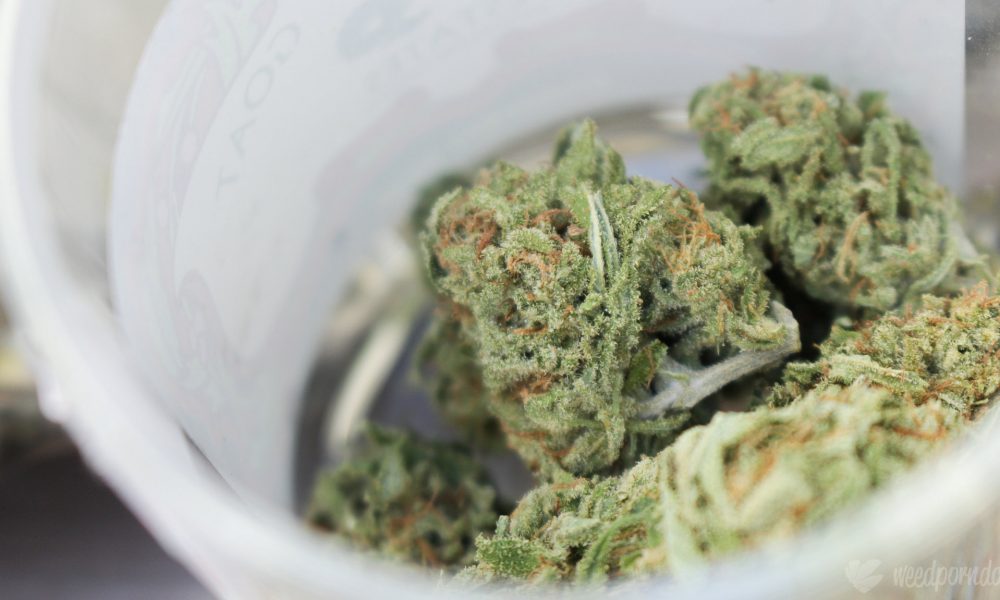Bipartisan congressional lawmakers have refiled a bill to provide military veterans with access to medical marijuana.
Reps. Brian Mast (R-FL) and Earl Blumenauer (D-OR), co-chairs of the Congressional Cannabis Caucus, are the chief sponsors of the Veterans Equal Access Act. The measure has been introduced several times in recent years with bipartisan support but has yet to be enacted.
The bill would allow government doctors at the U.S. Department of Veterans Affairs (VA) to recommend medical marijuana to their patients in states where it’s legal. They department would not provide cannabis, however, and veterans would use those recommendations to access it under existing state-legal dispensaries.
Mast, a military veteran himself who lost his legs during service in Afghanistan, said in response to a question from Marijuana Moment at a press conference on Thursday that “there’s absolutely progress going on, and I do have high hopes of policy and legislation moving” under the GOP-controlled House.
He added that he has had conversations with Republican leadership about this issue and pointed out that cannabis reform “touches every committee” and “every member” of Congress. The question is where lawmakers can find consensus on common sense solutions to problems that are identified on a bipartisan basis, he said.
HAPPENING NOW: @RepBlumenauer and I are introducing the Veterans Equal Access Act. Veterans deserve to have access to every tool possible when it comes to treating the physical and mental wounds of war – including medical cannabis. pic.twitter.com/Pl8pwQ3WUm
— Rep. Brian Mast (@RepBrianMast) March 30, 2023
Blumenauer said at the presser that passing the Veterans Equal Access Act “isn’t just low-hanging fruit—it’s picking it up off the ground.”
The veterans reform proposal, which mirrors committee-approved versions from past years, has also previously been pursued through the appropriations process as an amendment.
Lawmakers have ultimately decided to focus on standalone legislation following pushback from VA, which has consistently opposed modest marijuana reform proposals that relate to the department.
The Veterans Equal Access Act is a concise bill that supporters say would provide a modest but meaningful reform for the veteran community.
VA doctors are currently allowed to discuss medical cannabis with patients, but they’re not specifically authorized to issue recommendations, even in states that have legalized the plant for medical or recreational use.
The Congressional Budget Office conducted a fiscal analysis of an earlier version of the bill in 2020, finding that it would not cost the government anything to implement.
—
Marijuana Moment is tracking more than 1,000 cannabis, psychedelics and drug policy bills in state legislatures and Congress this year. Patreon supporters pledging at least $25/month get access to our interactive maps, charts and hearing calendar so they don’t miss any developments.![]()
Learn more about our marijuana bill tracker and become a supporter on Patreon to get access.
—
Supporters of the legislation include Iraq and Afghanistan Veterans of America (IAVA), AMVETS, Veterans of Foreign Wars (VFW), Veterans Cannabis Coalition (VCC), NORML, Drug Policy Alliance (DPA, Better Organizing to Win Legalization (BOWL) and National Cannabis Industry Association (NCIA).
VA, meanwhile, has consistently testified against even modest bills aimed at encouraging it to conduct more research on the potential medical benefits of cannabis for military veterans.
Blumenauer said on Thursday that one of his first conversations in the new Congress was with VA Secretary Denis McDonough, and the official “acknowledged the stories that he hears from veterans, and I think has greater open mindedness.”
“I think the people in the VA itself are the most powerful advocates,” he said, adding that an employee at the department at one point pulled him aside to say that cannabis saved their lives. “I just think that’s building, and I think that’s why we’ve going to be successful.”
Earlier this month, representatives of major Veterans Services Organization (VSOs) testified before a series of joint Senate and House committee, voicing support for medical marijuana research and criticizing VA for “dragging their feet” on the issue.
A coalition of more than 20 veterans service organizations (VSOs) sent a letter to congressional leaders late last year to urge the passage of a marijuana and veterans research bill before the end of the last Congress. But that did not pan out.
Also, a large-scale defense spending bill that was enacted at the end of the last session excluded separate language from a previously House-passed version that would have authorized VA doctors to recommend medical cannabis to veterans living in legal states.
A U.S. Senate committee approved a bipartisan bill last month to promote marijuana research for military veterans—becoming the first piece of standalone cannabis legislation ever to advance through a committee in the chamber.
A previous version of the legislation cleared a House committee in 2021, despite the protests of VA officials. Earlier iterations of the measure also moved through committee in 2020 and 2018 as well, but none were enacted into law.
In January, Rep. Greg Steube (R-FL) filed legislation that’s meant to protect military veterans from losing government benefits for using medical marijuana in compliance with state law. The bill would further codify that VA doctors are allowed to discuss the potential risks and benefits of marijuana with their patients.
A study conducted by VA officials that was published this month found that medical cannabis consumption more than doubled in the U.S. from 2013 to 2020, which is attributable to the state-level legalization movement.
Read the text of the Veterans Equal Access Act below:
Hawaii Health Department Says Legalizing Psychedelics Is A ‘More Meaningful’ Step Than Creating A Study Group
Photo courtesy of WeedPornDaily.
Read the full article here

